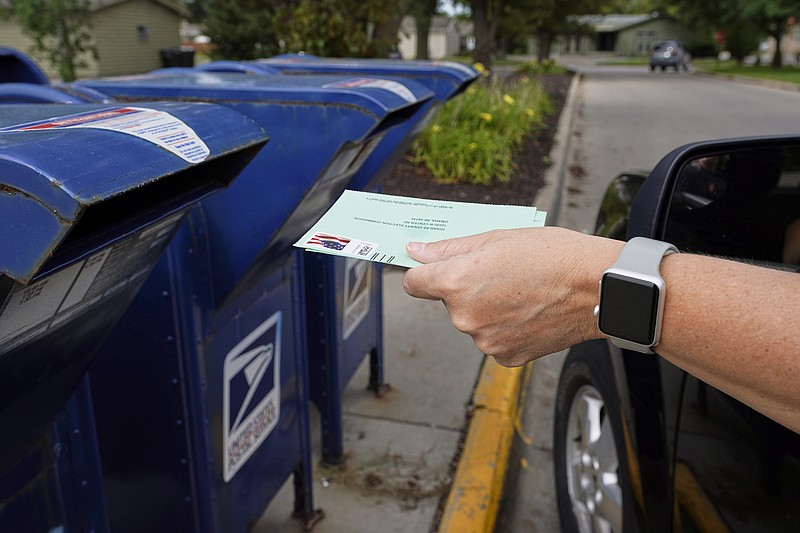NASHVILLE, Tenn. (AP) - Tennessee authorities cannot pursue perjury charges against voters who seek mail ballots by concluding on their own that they, or someone in their care, have a health condition that increases their risk for COVID-19, an attorney for the state said in court Thursday.
The comment by Deputy Attorney General Janet Kleinfelter came during questioning by Davidson County Chancellor Ellen Hobbs Lyle as the state and the groups that sued over absentee ballot access continued to argue about transparency in the state's vote-by-mail eligibility parameters.
Earlier this month, Tennessee's Supreme Court sided with the state by overturning a vote-by-mail option ordered by Lyle for all eligible voters. Afterward, the state removed mentions of COVID-19 from the absentee ballot application.
The plaintiffs argue the form doesn't follow the Supreme Court's order, which requires instructions for people with underlying health conditions to vote by mail. The state counters that underlying conditions are mentioned on its website and it has sent out news releases to publicize the change, which requires voters to check existing boxes on the form for either illness or caretaking.
The state did change its form in another way. A new section on the absentee application offers a reward of up to $1,000 for reporting voter fraud that leads to a conviction.
Additionally, the absentee application continues to requires voters to attest to the information they provide under the penalty of perjury.
Kleinfelter said the mention of the reward is needed "because there are other instances of voter fraud." As for medical excuses to vote absentee, Kleinfelter said the state did away with a required doctor's note in 1972 and it has been the honor system since.
"If the individual believes that they fit in that category then the state could not prosecute because we could not prove the elements of the crime," Kleinfelter said.
Whether an absentee vote should count or not could be the subject of an election challenge, if someone were to file one, Kleinfelter said.
The judge is now considering what authority she has after the Supreme Court ruling, as the plaintiffs request changes to the absentee voting application and other information sent out to inform voters of the underlying conditions reason to vote absentee.
The state first spelled out the exemption for those with underlying health conditions during a Supreme Court hearing earlier this month.
Republican Secretary of State Tre Hargett has pointed to guidance from the Centers from Disease Control and Prevention in advising voters about underlying conditions. The CDC says conditions that increase the risk of severe illness from COVID-19 range from cancer to obesity, while those that might increase the risk range from asthma to smoking.
His office has also said, "if a voter is too ill to go to shopping centers, Walmart, Home Depot, or other public places then they are probably too ill to go the polls and conversely, if you are going to those other places then common sense would indicate the voter is well enough to go to their polling place."
Under its excuse-based system, Tennessee typically requires voters to fit into one of more than a dozen categories to vote by mail, ranging from being 60 or older to being sick. The last day to request an absentee ballot for the November election is Oct. 27.
